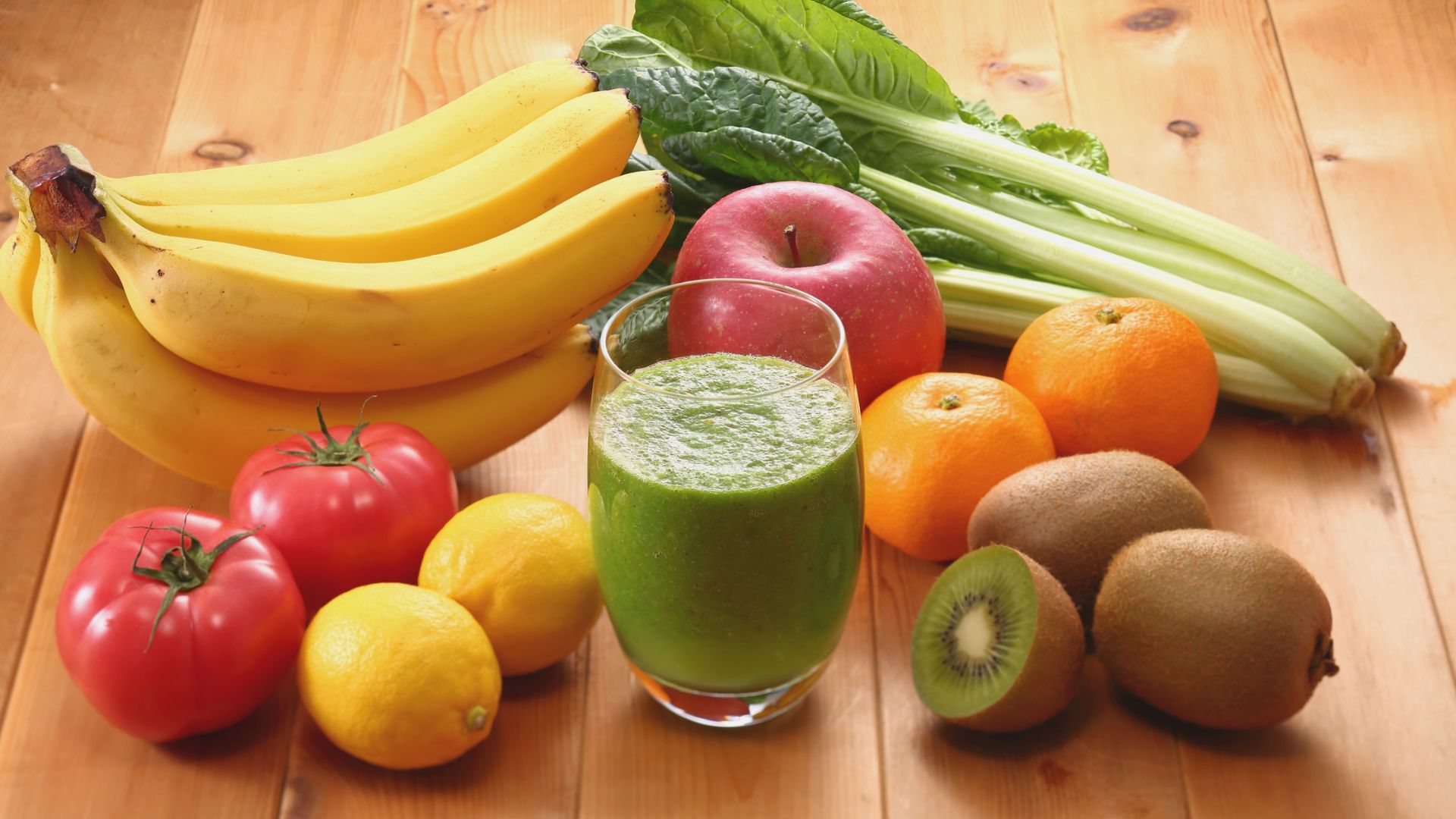The immune system is like an invincible army inside our body, fighting daily against millions of microbes, viruses, bacteria, and other pathogens. It protects us from illnesses, helps repair damaged tissues, and ensures the proper functioning of all organs and systems. However, like any army, the immune system needs good rest, proper nutrition, and consistent support to stay in fighting shape.
Our immune system works around the clock, detecting threats and neutralizing them before they can harm the body. One of its main tasks is to prevent infections such as colds, flu, or more serious illnesses. Therefore, caring for your immune system isn’t just about occasional protection from disease—it’s a long-term investment in overall health.
But like any complex mechanism, the immune system can weaken. Lack of sleep, stress, poor nutrition, unhealthy habits, and a sedentary lifestyle all negatively affect its function. When immunity is compromised, we become more vulnerable to infections, viruses, and even chronic conditions such as diabetes and cardiovascular diseases.
The good news is that we can maintain a high level of immunity by making smart everyday choices. This includes a healthy diet, adequate rest, and regular physical activity. The foods we eat play a vital role in strengthening the immune system. Vitamins, minerals, and other nutrients help boost the body’s defenses, enhance its response to threats, and speed up recovery after illness.
So, caring for the immune system is not just about fighting disease when it appears. It’s a long-term commitment to health that ensures an active, vibrant, and long life. In the next section, we’ll explore the key vitamins and minerals necessary to keep the immune system in peak condition, and which foods contain them.
Essential Nutrients for Immunity
For the immune system to function effectively and fight infections, the body needs certain key vitamins and minerals. These substances activate the immune response, support immune cell function, and help the body recover quickly after illness. Here are some of the most important nutrients for immunity:
Vitamin C
Vitamin C is perhaps the most well-known immune-boosting vitamin. It’s a powerful antioxidant that neutralizes free radicals and reduces inflammation. It enhances the activity of white blood cells (leukocytes), which are essential in the fight against viruses and bacteria. Vitamin C also improves the function of barrier tissues like the skin and mucous membranes, helping protect against external infections. It’s especially beneficial during colds and flu when the body’s need for it increases.
Sources: citrus fruits (oranges, lemons), strawberries, kiwi, bell peppers, broccoli.
Vitamin D
Often called the “sunshine vitamin,” vitamin D is produced in the body through exposure to sunlight. It regulates immune cell activity and helps the body respond appropriately to infections. Vitamin D also reduces inflammation and helps fight off viruses and bacteria. Recent studies suggest that vitamin D deficiency is linked to an increased risk of respiratory infections such as the flu and colds.
Sources: fatty fish (salmon, mackerel), egg yolks, mushrooms, fortified foods (milk, juices).
Zinc
Zinc is a crucial mineral involved in the formation and activation of immune cells. It’s essential for proper immune function, helping cells fight infections efficiently. Zinc speeds up recovery after illness and supports tissue healing. A deficiency can weaken the body’s defenses and slow down the recovery process.
Sources: meat (beef, chicken), seafood (oysters, shrimp), nuts, seeds, legumes.
B Vitamins
The B-complex group (including B1, B2, B3, B6, B12, and others) plays a critical role in supporting the nervous system and energy metabolism. They normalize metabolic processes, help the body combat chronic inflammation, and support immune cell function. B vitamins are also involved in antibody production, which is vital for pathogen defense.
Sources: whole grains, legumes, nuts, meat, eggs, fish, leafy green vegetables.
Iron
Iron is vital for immune function, playing a role in hemoglobin production and the proper functioning of red blood cells. Without enough iron, immune cells can’t fight infections effectively. A deficiency can weaken the immune system and increase the risk of anemia. Iron also supports energy levels and recovery after illness.
Sources: red meat, liver, spinach, legumes, pumpkin seeds.
Regularly obtaining these nutrients through food is essential to maintain strong immunity. A balanced diet that includes all necessary vitamins and minerals is the foundation of a resilient immune system. In the next section, we’ll take a closer look at specific foods that deliver these nutrients and how they support immune health.
Top Foods to Boost Immunity
Once we understand which vitamins and minerals are vital for immune defense, it’s important to know which foods can help supply them. Consuming a variety of nutrient-rich foods strengthens immune health. Let’s explore some of the best immune-supporting foods:
- Citrus Fruits
Citrus fruits are among the most well-known sources of vitamin C, which plays a key role in strengthening immunity. It supports cellular health, enhances immune response, and helps the body combat infections. Citrus fruits also contain flavonoids that boost the body’s antioxidant defenses.
Examples: oranges, lemons, grapefruits, tangerines.
- Ginger
Ginger is not just a popular spice—it’s a powerful immune-supporting agent. It has anti-inflammatory properties, improves circulation, and stimulates thermogenesis, which helps the body fight viruses. Ginger strengthens the immune response during colds and reduces the risk of infection. It also contains antioxidants that combat inflammation.
Use: fresh or dried ginger in tea, soups, or infusions.
- Yogurt and Fermented Foods
Yogurt, kefir, kimchi, sauerkraut, and other fermented foods are rich in probiotics—beneficial microorganisms that support gut health. Since around 70% of immune cells are located in the gut, maintaining a healthy microbiome is crucial for immunity. Probiotics balance gut flora and enhance immune function.
Examples: yogurt, kefir, sauerkraut, kimchi, fermented soy products.
- Garlic
Garlic is a natural antibiotic known for its antibacterial, antiviral, and antifungal properties. It contains allicin, a compound that strengthens the immune response, prevents infections, and reduces inflammation. Garlic activates immune cells, improves circulation, and boosts overall vitality.
Use: fresh garlic added to dishes, eaten raw, or used in infusions.
- Vegetables and Greens
Vegetables and leafy greens are rich in essential vitamins and minerals. Broccoli, spinach, cabbage, and other greens provide vitamins A, C, K, as well as folic acid and fiber. Vitamin C helps boost immunity, while vitamins A and K support mucous membranes—the body’s first line of defense.
Examples: broccoli, spinach, cabbage, arugula, parsley, green onions.
- Berries
Berries like blueberries, raspberries, and strawberries are excellent sources of antioxidants that fight inflammation and oxidative stress. They’re rich in vitamins C and E, which enhance immunity and aid recovery. Berries also provide fiber, supporting gut health and immune activity.
Examples: blueberries, raspberries, strawberries, blackberries, gooseberries.
- Nuts and Seeds
Nuts and seeds provide healthy fats, vitamins, and minerals—especially vitamin E, which supports cell membrane health and protects against damage. Vitamin E is a powerful antioxidant that boosts immunity, improves circulation, and supports immune cell function. Nuts and seeds also offer magnesium, zinc, and other key micronutrients.
Examples: almonds, walnuts, cashews, pumpkin seeds, sunflower seeds, flaxseeds, chia seeds.
Incorporating these foods into your diet can strengthen your immune system and keep it functioning well. It’s especially important to consider seasonality and dietary variety to ensure you get all necessary nutrients. In the next section, we’ll explore how nutrition, sleep, and physical activity affect immune health.
Routine and Balance: Nutrition, Sleep, Activity
Nutrition is a vital part of strengthening the immune system, but optimal protection also requires a healthy lifestyle:
- Sleep: Lack of sleep weakens immune response. Aim for 7–8 hours of quality sleep.
- Physical Activity: Moderate exercise boosts immunity, improves circulation, and strengthens the body.
- Stress: Chronic stress suppresses the immune system, so regular relaxation and recovery are essential.
Common Mistakes That Weaken Immunity
Even if you follow a healthy diet, certain habits and factors can negatively impact your immune health. Here are key mistakes that weaken your body’s defenses:
- Poor Sleep Habits
Sleep deprivation is one of the most serious factors that directly affects immunity. During sleep, the body undergoes repair and immune strengthening processes. Studies show that lack of sleep reduces the body’s ability to fight infection. Chronic sleep deprivation increases the risk of illness and delays recovery.
Tip: Ensure regular, high-quality sleep—at least 7–8 hours per night.
- Lack of Physical Activity
A sedentary lifestyle reduces immune function. Physical activity promotes circulation, supports the cardiovascular system, and helps deliver nutrients and oxygen to cells. It also helps the body fight infections more effectively. Studies show that regular moderate exercise boosts immunity and improves self-defense mechanisms.
Tip: Include regular physical activities like walking, running, yoga, or swimming. Balance is key—overexertion can also weaken immunity.
- Excessive Sugar Consumption
Too much sugar weakens the immune system and lowers its ability to fight infections. High sugar intake raises blood sugar levels, causing inflammation and reducing the activity of immune cells like phagocytes, which destroy pathogens. Sugar also contributes to chronic diseases like diabetes, which further impair immune function.
Tip: Limit sugar and high-glycemic foods. Choose natural sweeteners like honey or stevia and opt for whole foods with low sugar content.
Nutritionist’s Tips: A Seasonal Menu for Immune Support
To keep your immune system strong year-round, it’s important to consider the seasonality of foods. A diet focused on seasonal products helps provide the body with the necessary vitamins and minerals specific to each time of year.
- Winter
In winter, our bodies need extra support, as the cold season is often accompanied by reduced sunlight and lower vitamin D levels. To strengthen the immune system during winter, include more citrus fruits, root vegetables (carrots, beets), greens, and healthy fats (from salmon, chia seeds, and nuts). These foods help improve metabolism and support the health of the skin and mucous membranes.
Best foods for winter: citrus fruits, root vegetables, fatty fish, nuts, seeds.
- Spring
In spring, focus on fresh green vegetables, young sprouts, and berries. These foods are rich in vitamins and antioxidants that help the body detox, recover from winter fatigue, and prepare for the summer season.
Best foods for spring: fresh greens, young sprouts, spring berries, fresh vegetables.
- Summer
Summer is the perfect time to load up on vitamins, minerals, and antioxidants found abundantly in seasonal fruits and vegetables. Tomatoes, cucumbers, berries, and fruits like watermelon, melons, apricots, and peaches are especially beneficial. These foods help maintain fluid and electrolyte balance and protect against dehydration.
Best foods for summer: fresh summer vegetables and berries, fruits, leafy greens.
- Autumn
In autumn, it’s important to support your immune system with seasonal foods such as pumpkin, apples, nuts, and various root vegetables. These are high in fiber, vitamins, and antioxidants that help the body adapt to the colder months ahead.
Best foods for autumn: pumpkin, apples, nuts, autumn vegetables (beets, carrots, potatoes).
To strengthen your immune system, it’s enough to follow a healthy diet, get proper sleep, stay physically active, and avoid harmful habits. Including seasonal foods in your meals will help maintain your health throughout the year.
Quick tips:
- Include citrus fruits, garlic, ginger, and yogurt in your daily diet.
- Don’t forget vitamin D sources—especially during winter.
- Maintain a balanced diet and stay regularly active.
Shopping checklist:
- Citrus fruits (oranges, lemons, grapefruits)
- Probiotics (yogurt, kefir, kimchi)
- Vitamins A and C (broccoli, spinach, cabbage)
- Foods with omega-3 fatty acids (salmon, chia seeds)
- Berries and nuts (blueberries, walnuts, almonds)








